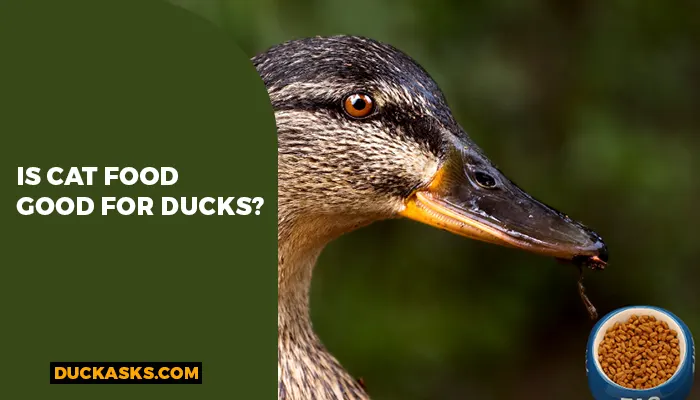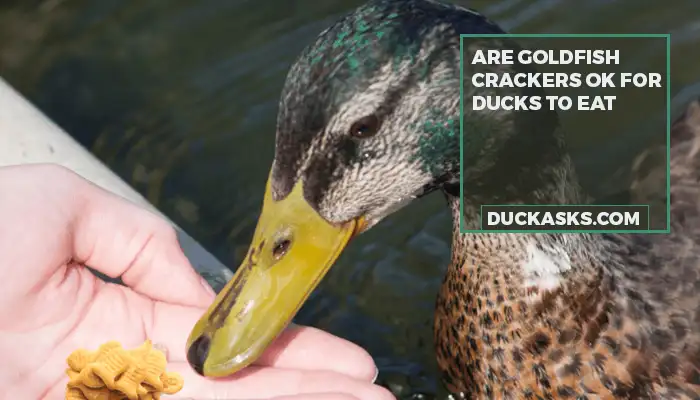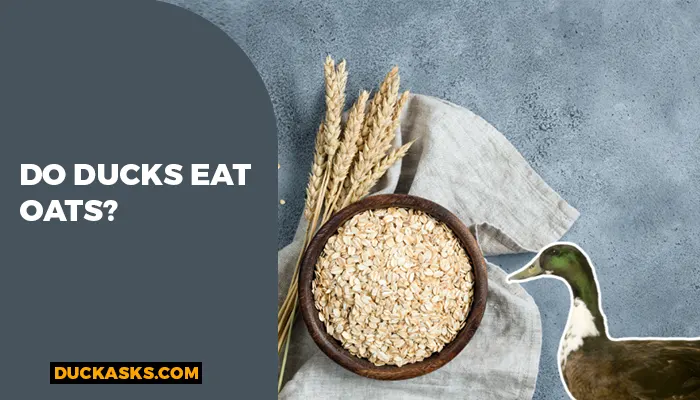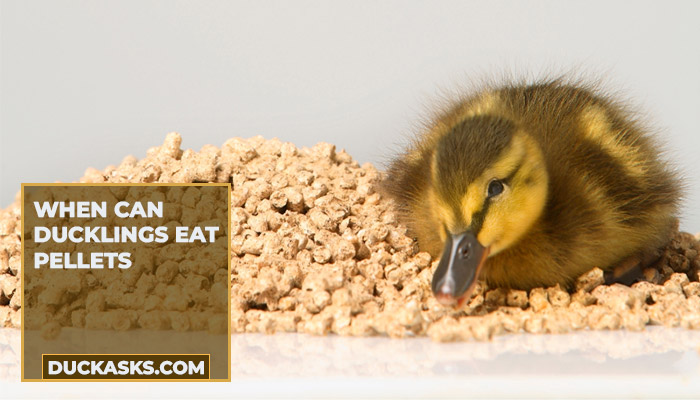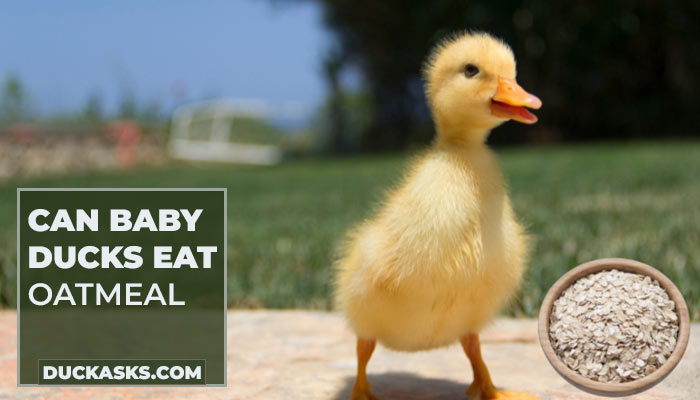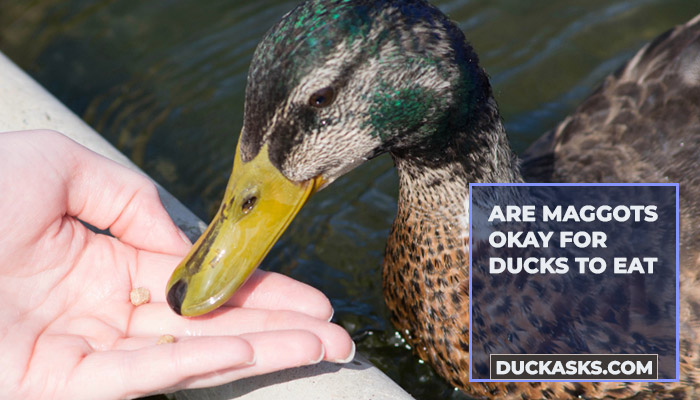Can Ducks Eat Scratch Grains?
Without question, cheerios, scrambled eggs, or kale are loved duck treats! But can ducks eat scratch grains as their ultimate “nutritional treat” option?
Well, yes! Ducks love to eat scratch grains. This can be a nutritious treat packed with some healthy fats and energy. And you can also say it’s one of their favorite treats too! However, excessive amounts can lead to selective eating, which can derail them from prime nutrient consumption.
So, through this blog, we’ll know more about the eating habits of ducks and how scratch grains can possibly benefit them (while keeping in limits).
Want to learn more about duck foods:
What Are Scratch Grains?
It’s a concoction and a blend that contains many ingredients, such as corn, oats, wheat, and more!
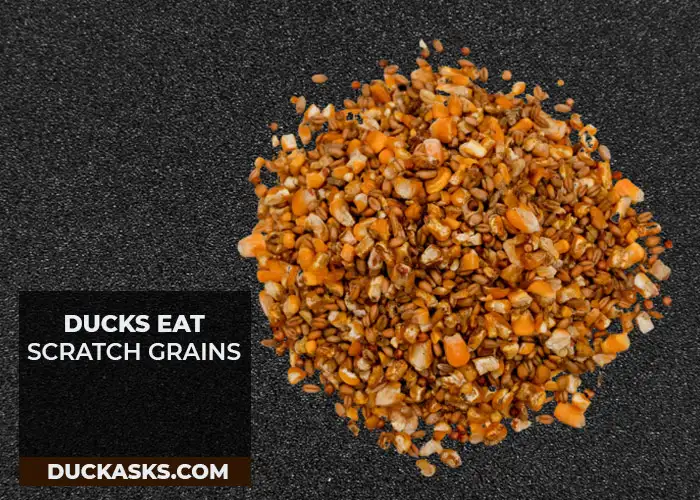
Typically, grain feed represents the food used for domestic or farm animals. The grain includes corn, barley, and rye. However, the scratch grain contains all that in one item. The thing is, the “Scratch Grain” is a sort of jack-of-all-trade type of food for the animals.
Poultry farms are mainly used for mass production. These farms are used for reselling the by-product of animals. Farmers can sell eggs or ducks, and using scratch-grain food helps a lot!
What Do You Need to Consider When Feeding Scratch Grains to Your Ducks?
While feeding your ducks scratch grains, there are certain things you need to consider. You simply can’t use these grains as the main food source as this encourages the ducks to selective eating. And this can lack the intake of proper and sufficient nutrition.
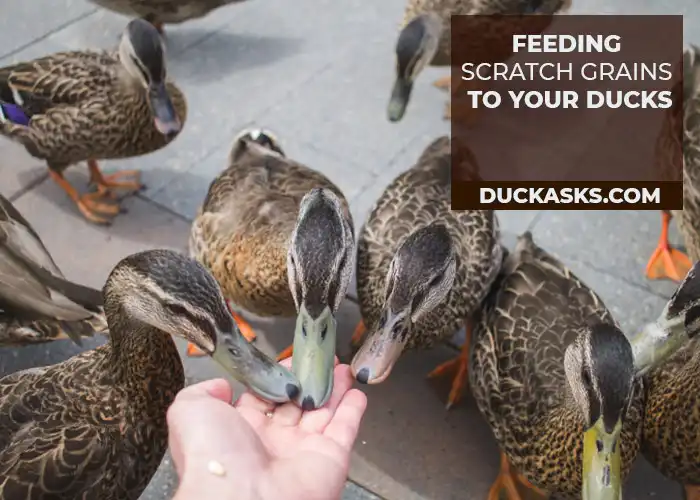
So, it’s best if you use scratch grains as treats only. That’s only part of it; you also need to maintain a proper proportion while giving these grain treats. If they are going to forage, the amount should be a bit lower than usual as they are getting other foods.
However, if not, you can bring the amount a bit higher but not that much. No matter what, scratch grains should not be your ducks’ ultimate food alternative!
Is It Okay to Feed Your Ducks with Fancy Scratch Grains?
Yes, it’s fine to go with fancy scratch grains, but as mentioned earlier, they should only be used as a treat since excessive scratch grains can lead to malnutrition.
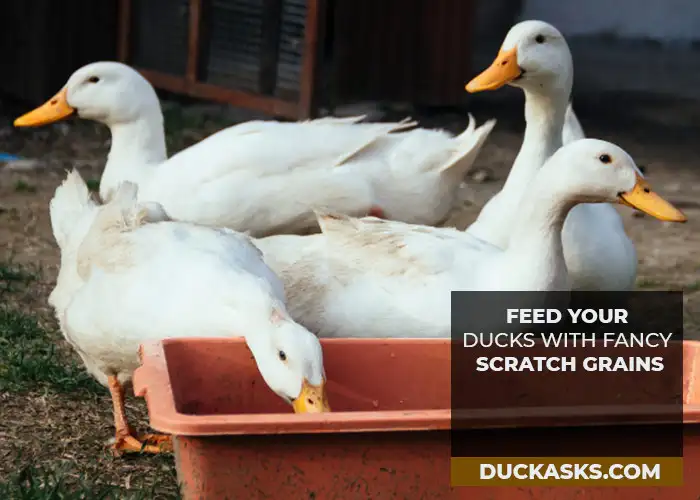
However, as long as you keep the amounts in check, it should be absolutely fine for your ducks!
Why Do Ducks Eat Scratch Grains?
Well, as said before, ducks just love to go out and search for food. They eat various kinds of bugs and greens. Moreover, as ducks are omnivores, they also chow on tiny fish and their eggs (small fish are a great source of protein and many more nutrients).
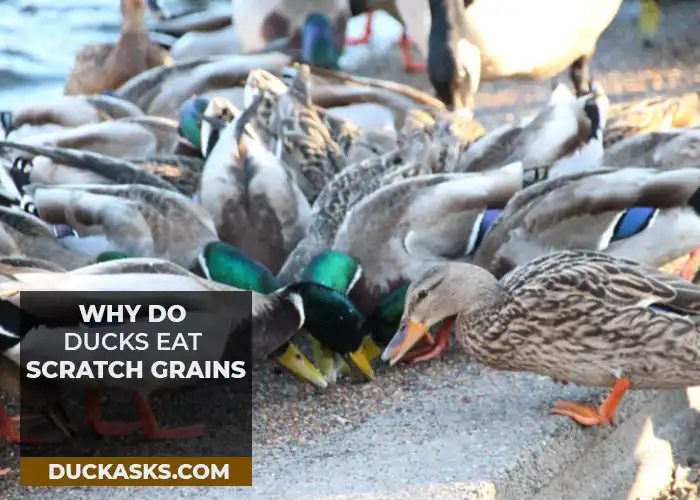
And the primary reason ducks are so into scratch grains is because it’s more like junk for them. Just like we love junk foods as they taste amazing but can compromise health if consumed in excess, the same goes for ducks.
The scratch grains are kind of addicting and very tasty for them. If given regularly, the ducks will go out of the line of diet and only eat scratch grains.
What Are the Benefits of Feeding Scratch Grains for Ducks?
Ducks just love collecting and looking for food. So, farmers tend to add scratch grains (as an additive) to make their diet tastier.
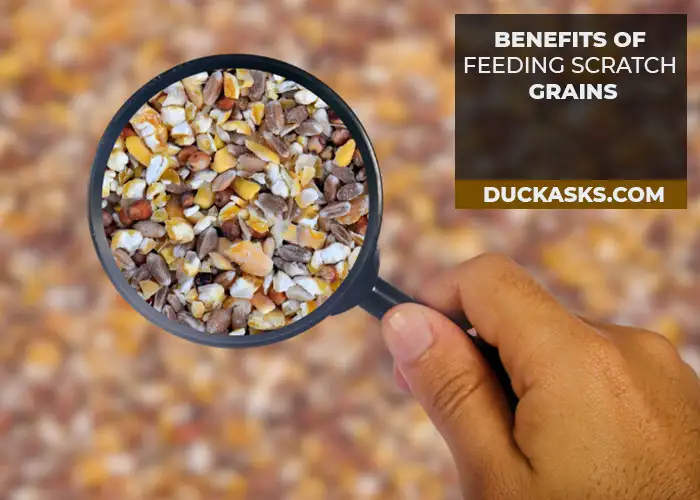
A limited amount of these grains can be pretty nutritious for the ducks as certain elements can be beneficial. However, ducks get most of their beneficial nutrients from other food sources, which are healthy.
With limited consumption of scratch grains, the ducks become more fertile and productive. So, if you’re using scratch grains as an additional nutrient source, you can go for it.
How to Make Homemade Scratch Grains for Ducks?
So, when it comes to making your homemade scratch grains for your ducks, it’s actually pretty straightforward.
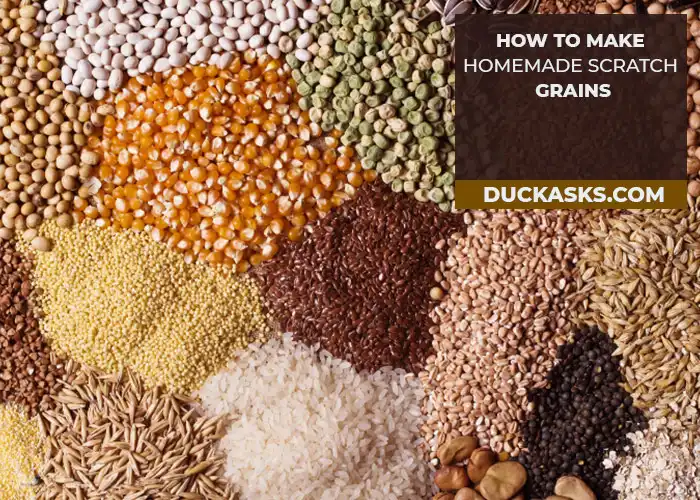
All you need are basic duck or poultry feeds such as:
Now, all you have to do is mix them up with your hand and store them in a well-ventilated place. And you’ll have your homemade scratch grain ready to serve!
Below are the benefits of the ingredients mentioned:
Wheat, Oats, Corn, and Barley
Wheat is a major source of carbohydrates. It contains many important nutrition components like magnesium, potassium, and niacin.
Niacin is a vitamin B used by poultries for cellular respiration, a process of producing energy from consumed foods.
Magnesium is very much needed for building muscles and maintaining blood pressure. And potassium also does that, but it also works, helping to maintain fluids inside blood cells.
Oats are enriched with calories and carbs. On the other hand, corn has sugar and is filled with Vitamin C.
Sunflower and Pumpkin Seeds
Helping with the immune system of the body and reducing many stomach issues is what sunflower and pumpkin seeds are known for. It also helps with chronic inflammation and even enhances the energy level.
Sunflower seeds contain vitamins E, B1 & B6, iron, and manganese. Pumpkin seeds are enriched with phosphorus, magnesium, and copper. This combination helps the body to be more strong, strengthening ducks’ immune system so they do not fall sick easily.
How to Incorporate Scratch Grains into Your Duck’s Diet?
Using scratch grains as treats is the only effective way to incorporate scratch grains into your ducks’ diet. Your ducks will love to devour them and look for more. If you want, you can mix it with their regular food or just provide the grains to eat.
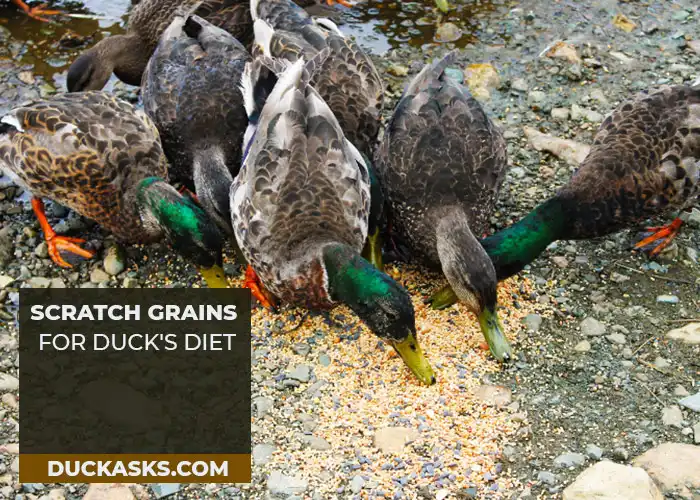
Preferably before sleep, a small amount of scratch is enough. As they sleep, this will keep them healthy and boost their immune system.
During mating time, drakes will be more productive and fertile, while female ducks will lay healthy eggs. This help incorporates strength into the baby ducks in the womb and after getting born.
What Do Ducks Eat in the Wild?
Ducks roam through the wild, freely looking for food. They usually take on small bugs and insects, and worms are their favorites!
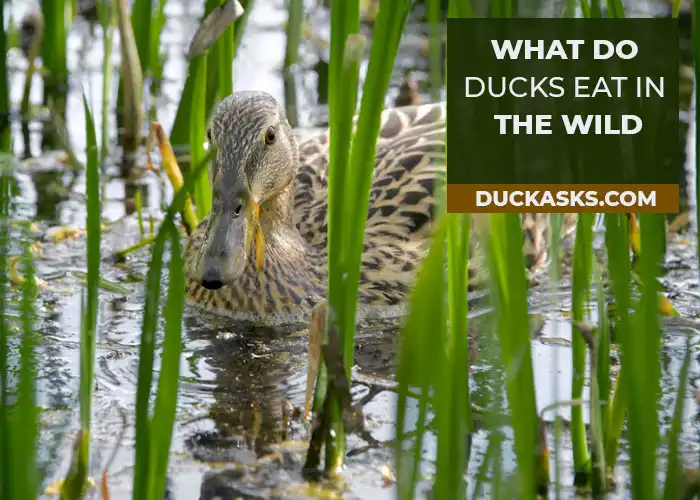
These birds also love to chew on greens. They mainly love grasses, weeds, and seeds that come from the wild. Moreover, as ducks are bird species from both land and water, they also like small fishes and fish eggs.
Bottom Line
Can ducks eat scratch grains? Well, yes, they can. This is because it works as a treat for them while they can not forage for food in the open. However, you must ensure you stay within the limit while providing them with these grains.
We hope this blog was helpful to you, and we would love it if you shared this content with others. And connect with us through Pinterest, Facebook, and Twitter for more astounding duck facts!
Image Credit:
- Canva.com/photos

